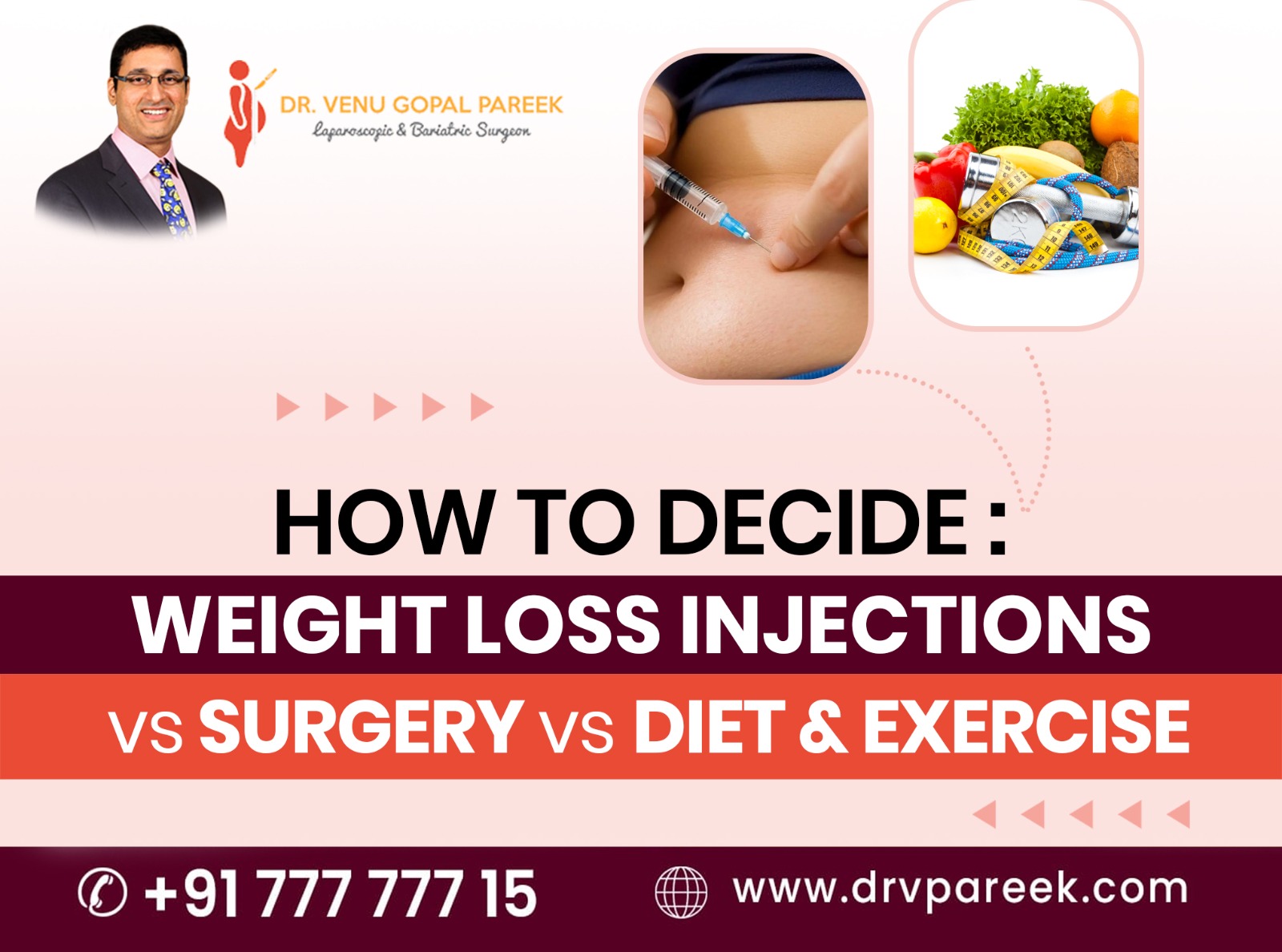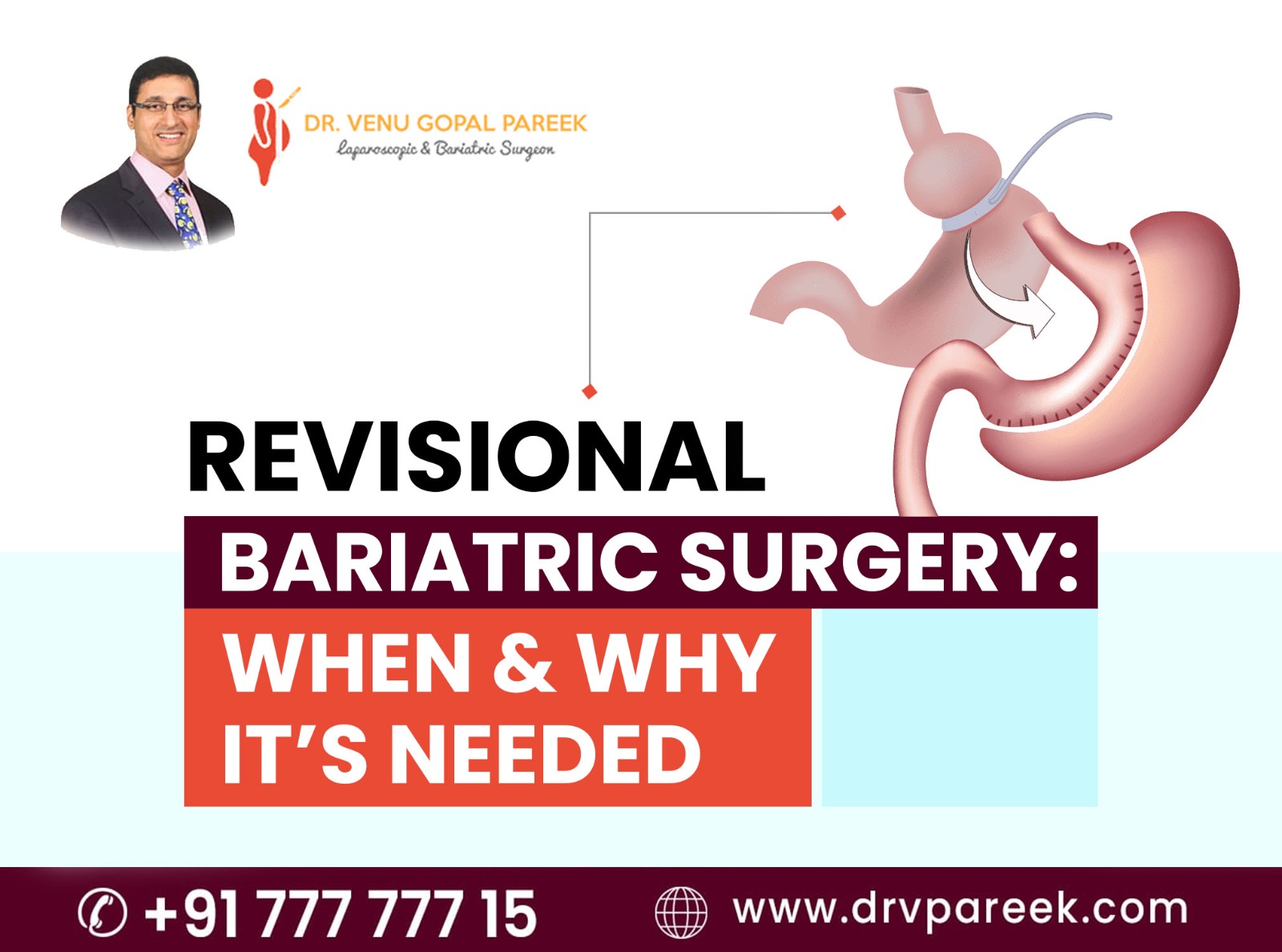Vitamin & Nutrient Deficiencies After Bariatric Surgery: How to Manage
Bariatric surgeries in this modern era are the most effective at treating obesity and related conditions. These procedures help reduce more than 50% of your excess body weight within a few months. However, bariatric procedures, often referred to as weight loss surgeries, involve making significant changes to the body, which can lead to certain complications. Vitamin deficiencies are one of the most common and manageable complications that can occur after bariatric surgery.
The major alterations are made to the stomach and intestines, which change the way of digesting and processing the food you consume, leading to a risk of vitamin and nutrient deficiencies. So it is very important to know the common nutrients that are affected and how to prevent or treat the deficiencies because they play a crucial role in long-term success following any weight loss surgery.
Reasons for vitamin deficiencies
Restrictive surgeries (such as sleeve gastrectomy) reduce the volume of the stomach, and therefore, the size of the portions you eat might be small, and the desire to eat decreases. As a result, it may become difficult to get the necessary daily nutrients just from food.
Malabsorptive surgical procedures, which include Roux‑en‑Y gastric bypass, biliopancreatic diversion, etc., involve a partial detachment and rerouting of the small intestine, resulting in the absorption of fewer nutrients by the body.
Some individuals may have low nutrient levels even before surgery, as they might have followed a restrictive diet to lose weight. Postoperative nausea, food intolerance, and the use of certain medications can make the condition worse.
Bacterial overgrowth is possible in rerouted intestines, and it changes the production of vitamins or their usage.
Common vitamins that are deficient after surgery
The following vitamins are most commonly affected following a bariatric procedure:
Water-soluble vitamins
Thiamine (B1)
This vitamin is available in low quantities, and it can drop within 4 to 6 weeks following bariatric surgery.
The following symptoms indicate a deficiency of this vitamin.
- Fatigue
- Confusion
- Neuro problems
- Wernicke’s encephalopathy in severe cases
In case of mild B1 deficiency, doctors may suggest taking oral supplements twice a day. However, in case of severe deficiency, where neurologic symptoms are present, a high dosage of parenteral thiamine is often given by injection for 3–5 days.
Riboflavin (B2)
It is common to have a mild B2 deficiency, which may not cause severe problems. It is often displayed as a biochemical deficiency in lab tests.
Signs and symptoms like mouth sores, glossitis (an inflamed or sore tongue), or dermatitis (skin rashes).
Taking B2 supplements daily can help to overcome this deficiency.
Folate (B9)
Folate plays a key role in the formation of red blood cells and DNA repair. However, deficiency of B9 is common following surgery, and initially, it doesn’t show symptoms.
Signs and symptoms that indicate B9 deficiency are fatigue, anemia, and weakness.
Doctors suggest taking folic acid tablets daily to correct folate (B9) deficiency.
Vitamin B12
This vitamin deficiency usually appears months after surgery because our bodies store B12 reserves, which can last for quite some time.
Signs and symptoms that indicate B12 deficiency are:
- Tingling sensation
- Numbness
- Memory issues
- Mood changes
- Anemia
Supplements for vitamin B12 deficiency include high doses of oral tablets daily or intramuscular injections every 6 months, or nasal or sublingual forms may resolve it.
Vitamin C
Vitamin C deficiency is commonly observed within 1 to 2 years after bariatric procedures.
Signs and symptoms that indicate B12 deficiency are:
- Fatigue
- Poor wound healing
- Gum problems like bleeding
- Easy bruising
Taking vitamin C supplements daily can help to restore levels.
Biotin
Deficiency of biotin is rare. People with this deficiency experience taste disturbance. Regular supplementation can help restore biotin levels.
Fat-soluble vitamins
Vitamin A
People who have undergone malabsorptive procedures like biliopancreatic diversion and gastric bypasses are mostly at risk for vitamin A deficiency. The symptoms that indicate the deficiency are defective night vision, dry eyes, skin problems, and lowered resistance.
The administration of beta‑carotene or vitamin A supplements can restore the levels; the dosage is customized to prevent toxicity.
Vitamin D
The deficiency of this vitamin is common among bariatric surgery patients, and some patients have it before surgery. Low vitamin D levels lead to secondary hyperparathyroidism, resulting in bone loss and a high risk of fractures. The process of treatment usually includes taking high-dose vitamin D supplements every week, followed by a daily maintenance dose of cholecalciferol. Monitoring bone density is necessary.
Vitamins E and K
These vitamin deficiencies are less frequent but can still happen, especially after undergoing malabsorptive procedures. Vitamin E is one of the essential vitamins that can support your nerves and immune function; vitamin K is an integral part of the normal blood clotting process and bone health. The selected supplementation will help to restore the balance in case of deficiencies.
How to prevent and manage deficiencies?
Before surgery, evaluate and treat any vitamin or nutrient deficiencies to ensure that you are at a healthy starting point.
Choose a combination that is suitable for your surgery and has higher levels of B-complex, fat-soluble vitamins, and minerals. Multivitamin/mineral supplements from the general store might not fulfill your needs.
Vitamin D3 with calcium citrate, vitamin B12, and iron are commonly included in supplements. Depending on the severity and symptoms, additional vitamin A, thiamine, or folate may be prescribed.
Initially, take 60–90 grams of protein daily as advised by the surgeons, and then for vitamin C and folate resources, we can add vegetables and fruits to the diet. Over time, take soups, smoothies, Greek yoghurt, cottage cheese, eggs, fish, and soft legumes; they are all good sources of vitamins and minerals.
Try avoiding fluids along with meals, and also stop drinking low‑nutrient drinks. Dehydration makes fatigue and low appetite worse.
If vitamin and mineral levels are still low, doctors may suggest acid suppressants and other drugs.
If bloating, diarrhea, or deficiencies persist, consult your surgeon.
If you are looking for the best bariatric surgeon who can help you recover without any vitamin or mineral deficiencies, consult Dr. Venugopal Pareek, one of the best weight loss surgeons in Hyderabad. He and his team provide tailored post-surgical care.







